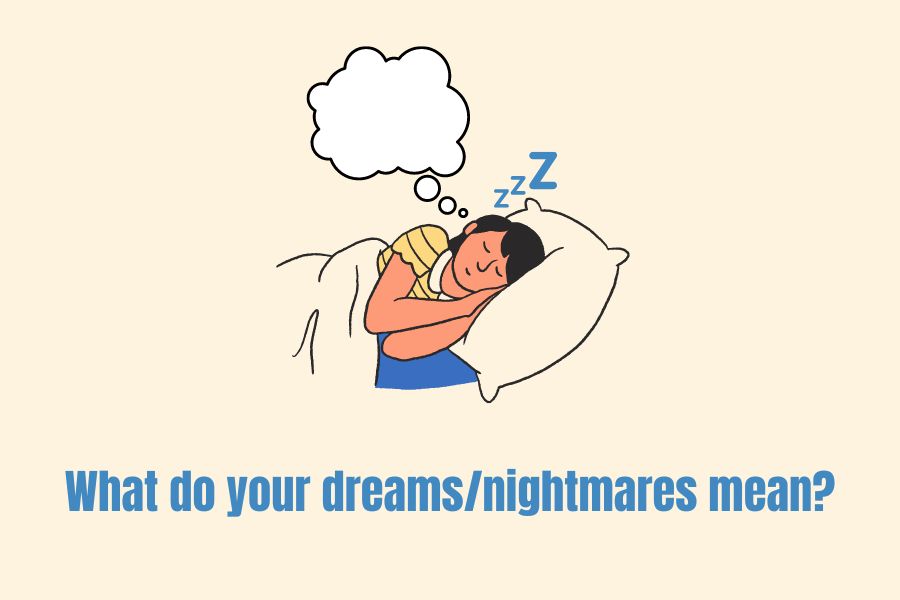What your dreams or nightmares could mean
When you sleep, you mostly read during the REM stage of sleep.
All of us dream while we sleep. Do you know that those dreams could mean something?
What causes us to dream?
There is a lot to know about dreaming, but activation-synthesis hypothesis thinks dreams are caused by brainstem activation during rapid eye movement sleep and stimulation of the limbic system (emotional motor system),Sleep studies show our brain waves are almost as active during rapid eye movement cycles as they are when we’re awake. Nightmares and sleep paralysis can be triggered by many things like stress/anxiety. Such as a problem at home or school, trigger nightmares. A major change, like a move or the death of someone you know and things like this can be a cause, other things such as PTSD can also be a cause. Sleep paralysis is a brief loss of muscle control after falling asleep or after waking up, 75% of these episodes are hallucinations and chemical reactions or abnormalities in the brain can cause this.

Benefits of dreaming
One benefit researchers have found is that rapid eye movement sleep helps reduce the emotional tone of our memories. This means that when something stressful or traumatic happens to you, the rapid eye movement phase of sleep helps to gradually decrease your emotional response to that event. It’s also good for creativity and problem solving skills.

Grade: Senior
Hobbies: Sports/Outdoor activities
Car: Dodge
Best restaurant: Red Lobster
Marvel or DC: Marvel














